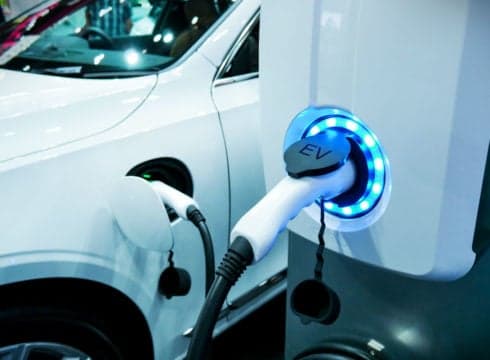The state will also offer financial incentives to encourage component manufacturing
The state industrial policy draft also calls for provisions for allotment of land on short-term leases
The draft policy also proposes introducing dynamic power tariffs
Inc42 Daily Brief
Stay Ahead With Daily News & Analysis on India’s Tech & Startup Economy
Joining the Indian government’s ambitious plans for enhancing electric mobility in the country, the Rajasthan government has announced its contribution to the electric vehicle (EV) industry.
According to the new draft industrial policy of Rajasthan, the government is planning to set up an EV research and manufacturing zone. The state will also offer financial incentives to encourage component manufacturing for EVs and proposes to bring in a dedicated policy to provide impetus to the sector.
Further, the policy draft also calls for provisions for allotment of land on short-term leases. The government believes that the move will reduce the land cost for the entrepreneurs as the leases would be for three years.
In another boost for the entrepreneurs, the draft policy also proposes introducing dynamic power tariffs, simplification and reduction of wheeling charges, reducing additional surcharges and waiving cross-subsidy on open access.
Some of the other benefits for the business segment being talked about in the policy include:
- a special tariff for steel and textiles industries
- incentives for units engaged in manufacturing of PV solar and battery modules
- duty waiver on actual use of captive power have been proposed
- provide power to apparel, handloom, and certain handicrafts products at residential rates
The EV revolution in the country has come to the runway and is continuing to grab the attention of Indian and global industry watchers. In a bid to ensure greener mobility, the Narendra Modi-led government had taken several steps to promote production and adoption of EVs in India.
The policy think tank of the government NITI Aayog had recently proposed that only EVs should be sold in India by 2030. For this, it called for complete electric transition for three-wheelers by 2023 and two-wheelers with an engine capacity less than 150 CC by 2025.
In the Union Budget 2019, Finance Minister Nirmala Sitharaman proposed a new scheme, which will invite global companies through a transparent competitive bidding process to set up “mega manufacturing plants in sunrise” and advanced technology areas including lithium storage batteries, and charging infrastructure.
Due to the lack of a robust EV charging infrastructure and the low domestic EV parts manufacturing capacity, companies in this space had to invest heavily in setting up their own charging infrastructure and spending huge amounts on importing key EV components. As the state governments like Rajasthan take up the onus to support the EV industry, the ambitious plans for the central government may turn true.
{{#name}}{{name}}{{/name}}{{^name}}-{{/name}}
{{#description}}{{description}}...{{/description}}{{^description}}-{{/description}}
Note: We at Inc42 take our ethics very seriously. More information about it can be found here.


